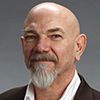U.S. Attorney General Jeff Sessions’ recent letter critiquing Washington’s legal pot system was disputed by state officials, who say Sessions is ill-informed and relying on outdated information.
Is U.S. Attorney General Jeff Sessions about to crack down on legal marijuana?
A recent letter he sent to top Washington officials, critiquing the state’s legal pot system, “raises concerns significantly,” said state Attorney General Bob Ferguson.
But before anyone rushes out to stock up on legal supplies, The Associated Press reports that a task force assembled by Sessions is recommending that the U.S. Department of Justice continue to study the Obama administration’s arms-length approach to legalization experiments that spread from Washington and Colorado in 2012 to eight states today.
Ferguson and Gov. Jay Inslee said Friday that shortcomings of Washington’s legal pot system cited by Sessions are inaccurate and out-of-date.
Most Read Local Stories
“Honestly, it’s hard to take him seriously if he relies on such outdated information,” Ferguson said in an interview.
Ferguson pointed to the first bullet point in Sessions’ letter, raising “serious questions” about Washington’s legal system. Sessions refers to a lack of medical-marijuana regulations leading to a growth in the black market for pot.
But Sessions’ concerns come from an early 2016 law-enforcement report before the state merged a largely unregulated medical system with its strictly regulated recreational system, Ferguson said.
“Do your homework, get good information,” he said in panning Sessions’ letter and pledging to uphold the state’s pot law, which allows adults to possess small amounts.
Ammunition for a federal crackdown was not supplied by Sessions’ Task Force on Crime Reduction and Public Safety, a group of prosecutors and federal law-enforcement officials.
The group’s report largely reiterates the current Justice Department policy on marijuana.
Obama’s approach was embodied in the so-called Cole Memo, named after U.S. Deputy Attorney General James Cole, who wrote it. The memo said the feds would not stop the state-regulated systems as long as they adhered to priorities such as keeping legal pot from minors and from being diverted illegally into other states.
Sessions, who has assailed marijuana as comparable to heroin and blamed it for spikes in violence, has been promising to reconsider existing pot policy since he took office six months ago. His statements have sparked both support and worry across the political spectrum as a growing number of states have worked to legalize the drug.
Worriers could read the letter to Inslee and Ferguson as staging for a crackdown.
But Sessions’ letter might be intended to put states on notice that he is going to watchdog their adherence to the Cole Memo, Ferguson said.
“I’d say Washington has worked hard to comply with those goals,” Ferguson said.
Youth use of marijuana has not increased according to surveys of thousands of students by the state Department of Health. And a recent study in the American Journal of Public Health concluded that three years after legalization, crash-fatality rates for Washington and Colorado were not statistically different from those in similar states without legal pot.
“I am incredibly proud of the work we’ve done to implement legalization in a way that keeps youth safe, minimizes diversion into the black market, and minimizes diversion of product out of state,” Inslee said in a statement.
Sessions’ letter responds to several Ferguson and Inslee had sent this year to the top federal law officer amid rumors of a crackdown.
Ferguson and Inslee had stressed Washington’s robust marijuana regulations and their concern for public health. In replying, Sessions noted — as the Cole Memo does — that the federal government may still enforce its prohibition of marijuana.
Sessions also highlighted a report last year from a federally-funded drug-enforcement organization that raised questions about how effectively the state is controlling the industry. He said he looked forward to learning how Washington state leaders would address those questions.
Inslee and Ferguson reiterated Friday their desire to meet with Sessions to discuss Washington’s legalization.
Ferguson noted that he and the governor met with Sessions’ predecessor Eric Holder shortly after legalization took effect. “I think that face-to-face conversation helped” keep the Department of Justice at bay, he said.
“Sessions is on thin political ice, and public opinion on cannabis — and states’ rights to determine how their law enforcement resources should be used with respect to cannabis — makes this a losing issue for him. I’m surprised he decided this was the best way to rally his supporters,” said Alison Holcomb, chief author of Washington’s pot law.
